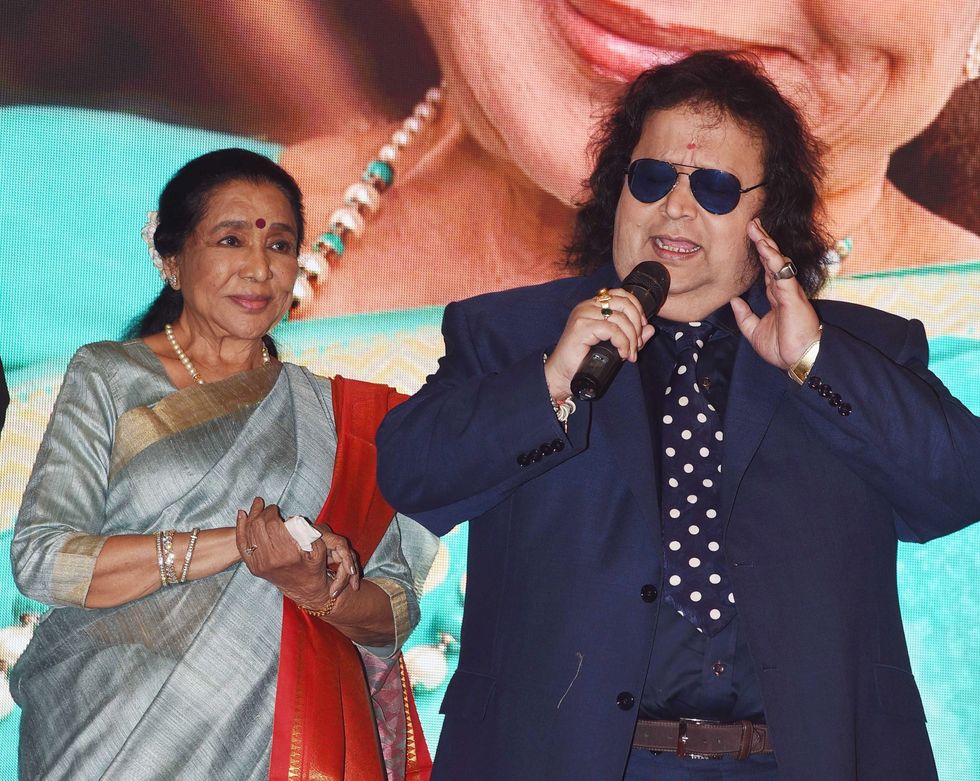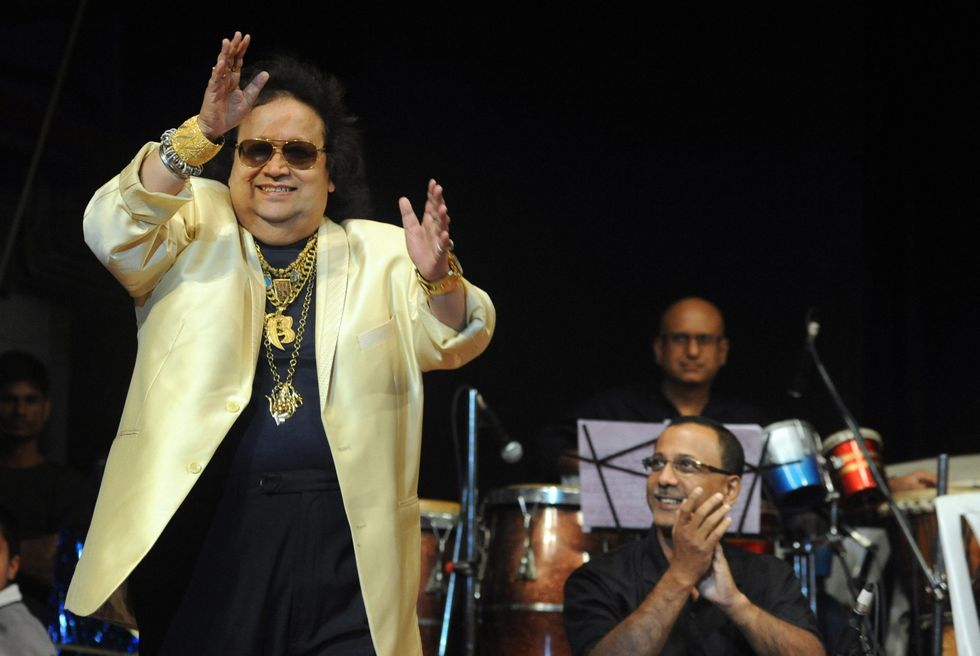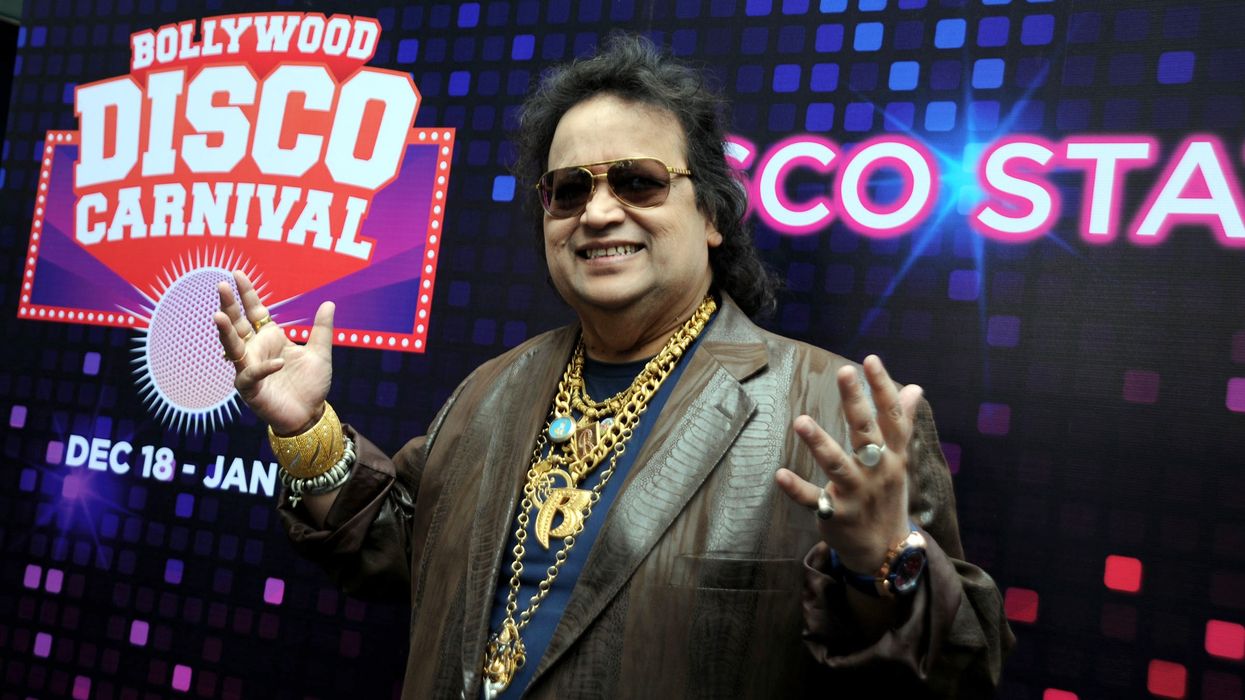If ever there was a persona perfectly in tune with his songs, it must be Bappi Lahiri, the man who introduced disco to Hindi films, his young-at-heart, popular music as unmindful of disapproving purists as he may have been of those who raised eyebrows at his gold chains and dark glasses.
The singer-composer, who was just 69 when he died in a Mumbai hospital on Tuesday night, embodied an irreverent pop cool all his own with both his appearance and songs, primarily through the 80s and 90s that saw hits such as “I'm a disco dancer”, “Koi yahaan naache naache” and “Jimmy Jimmy”. There were many others too – “Yaar bina chain kahan re”, “Kaliyon ka chaman”, “De de pyaar de”, “Jawaani jaaneman” and “Tamma Tamma” among some of them. The swagger in the many numbers inseparable from the singer and creator, whose career spanned five decades of melodies.
In what is a credit to the longevity of his music, Lahiri's songs are some of the most repurposed or remixed in Bollywood, being used in Anurag Kashyap's Gangs of Wasseypur: Part 1, for instance, as well as in the gay romance Shubh Mangal Zyada Saavdhan.
If Mithun Chakraborty was the star of the 80s, Lahiri was the voice behind him, and the music behind his dancing steps. The two memorably collaborated on Disco Dancer, Prem Pratigya, Wardat, Suraksha, Guru, Kasam Paida Karne Wale Ki, and Commando.

Lahiri, who introduced the disco era to Bollywood, also ventured into politics when he joined the BJP in 2014. He is survived by his wife Chitrani and two children - daughter Reema, also a singer, and son Bappa Lahir, a composer. He tried to make a bid in electoral politics when he contested the Srerampur Lok Sabha seat in West Bengal but lost to Kalyan Banerjee of the All India Trinamool Congress. It was but a chapter in a life devoted to music for the most part.
Born Alokesh Lahiri in Jalpaiguri, West Bengal, into a family of musicians, Lahiri's inclination towards music started at the early age of three when he started learning the tabla. His parents Paresh and Bansari Lahiri were both well-known musicians and singers, much like their son later on in life.
Kishore Kumar, who sang "Pag Ghunghroo" and "Chalte Chalte" for him, was his maternal uncle. Lahiri pioneered synthesised disco music in Indian cinema through the 70s to the 90s and continued to give hits in the 2000s too with the hits "Bambai Nagariya" from Taxi No 9211, and "Ooh La La" from The Dirty Picture (2011), both directed by Milan Luthria. More than anything else, it was his personality which was like a pop icon, said Luthria.
"He was the only composer who took on the Big Threes in the 70s and 80s -- Laxmikant-Pyarelal, RD Burman, and Kalyanji-Anandji. In the 1990s, there was Anu Malik, but Bappi da held his own," Luthria told PTI.
Lahiri, who created several classics for Amitabh Bachchan, also lent his voice to Abhishek Bachchan in AR Rahman's composition "Ek Lo Ek Muft" from Mani Ratnam's Guru (2007).
He also was one of the singers who crooned "Tune Maari Entriyaan" from 2014's Gunday as filmmakers wanted to hark back to the music of the 80s and who better than Lahiri to recreate the era that he ruled.
While the shiny moniker of 'Disco King' weighed heavy over his music, he proved his versatility with softer numbers, including in "Chalte Chalte" and ghazals "Kisi Nazar Ko Tera Intezaar Aaj Bhi Hai" and "Aawaz Di Hai" from Aitbaar.
He also looked westwards to increase his musical reach. Lahiri dubbed in Hindi for singing icon Elton John for the 2017 spy comedy Kingsman: The Golden Circle and for Jemaine Clement in the 2016 animated film Moana. He also composed and sang "Shona" (Gold), the Hindi version of "Shiny".
When portions of "Kaliyon Ka Chaman" were included in the 2002 song "Addictive" by American singer Truth Hurts, copyright holders Saregama India, Ltd. sued Interscope Records and its parent company, Universal Music Group for more than USD 500 million. A Los Angeles federal judge subsequently barred further sales of the CD unless and until Lahiri was listed on the song's credits.
In 2017, his classic song “Jhoom Jhoom” was featured in the Hindi promotional clip of Marvel Studio's Guardians of the Galaxy Vol. 2.

Lahiri also gave music to films in Bengali, Telugu, Tamil, Kannada, and Gujarati. He began his career with the 1972 film Daadu. His first Hindi film as a composer was Nanha Shikari in 1973. It was the 1975 Hindi film Zakhmee that got him noticed with songs such as "Aao Tumhe Chand Pe Le Jayen" and the Holi song "Zakhmee dilon ka badla chukane". The film brought him to Chalte Chalte, Surakshaa, and others as his disco beats became popular among the youth, earning him the title of Disco King in India.
Disco may have gone out of style in the later years of Bollywood music but the singer, in an interview with PTI in 2019, said he was grateful to have voiced for some of the biggest stars of their era. "I feel so proud to have had this journey and to have worked with all the extremely talented people in the industry. Simply put, my life is Dilip Kumar to Ranveer Singh. From Dharm Adhikari to Gunday, I've done it all,” he told PTI.




